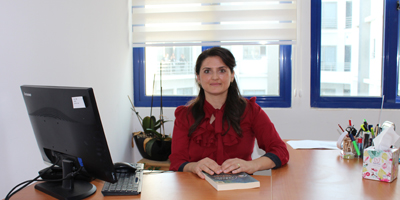EUL Academician Özada evaluated Child Rights from Social Services Perspective

Child Rights are like a Guiding Spirit and Compass against the Interventions aimed at Children
European University of Lefke (EUL) Faculty of Health Sciences Department of Social Services Academician Assist. Prof. Dr. Ayşe Özada attracted attention to the Child rights and evaluated Child Rights from a social services perspective.
Özada: Everyone who is under the age of 18 is considered a child
Özada pointed out that, the UN Convention on the Rights of the Child was accepted on the November 20th 1989 by United Nations General Assembly and it was approved and inured in the Turkish Republic of Northern Cyprus in 1996 and said that, “The Convention states that until the age of eighteen, everyone is considered a child. Physical, cognitive, social and emotional development is required in this period and children should be treated separately from adults”.
Özada: It is our duty to protect children’s right to life and development
Özada pointed out that, The Convention on the Rights of the Child protects the children’s care and protection needs and the rights arising therefrom by the rules of law. She further said that The Convention on the Rights of the Child is based on four basic principles and listed these principles as; non-discrimination; adherence to the best interests of the child; the right to life, survival and development; and the right to participate. Özada stated that the association responsible of protecting children is the Social Services Office and said that, “Under the Children’s Law of Chapter 352, the Social Services Office has the authority to take children under state protection or, where necessary, to take appropriate action in view of the best interests of children”. In this respect, Özada emphasized that children’s rights are of special importance for the social work profession that works directly with children and added that Child Rights are like a guiding spirit and a compass against interventions aimed at children. Pointing out that, the main principle that shapes the decisions related with the children is “adherence to the best interests of the child” Özada said that, “Especially in protection decisions, foster family and adoption processes and custody cases, protecting the best interest of the child it is of utmost importance.”
Özada: In case of any suspicion of abuse, the Social Services Office must be informed.
Özada said that, “Over the last year we have faced the fact that we cannot protect our children. We also witnessed many children being victimized because we were unable to take preventive measures,” and underlined that, in case of any suspicion of abuse, the most important responsibility of citizenship is informing the Social Services Office. Özada stated that, social services professionals also have great responsibilities in ensuring child welfare and added that, at this point, things that can be conducted from the social services perspective can be evaluated in two different phases. Özada stated the first phase as conducting a situation assessment for children and added that, in this phase it is necessary to determine and record the needs of children, risky regions and children at risk using scientific methods. Özada stated the second phase as; establishing child policy and reviewing legal regulations for children and making them suitable for today’s conditions. Özada finally said that, “It is clear that the practitioners and academicians of the social work profession must carry out a lot of effort in order to directly influence and advocate for policies related to children’s rights”.
